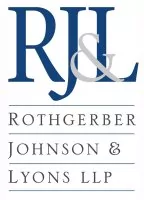Under Title IX, an educational institution receiving federal financial assistance may not discriminate against any person on the basis of sex. Courts have interpreted Title IX as prohibiting diverse forms of intentional gender discrimination. Until recently, however, it was unclear whether or not Title IX provided a cause of action for employees who are retaliated against for protesting discrimination. Then, last March, the United States Supreme Court answered the question: Title IX does provide a private cause of action for retaliation claims. In Jackson v. Birmingham Bd. of Educ., the Supreme Court held that under Title IX, a high school girls' basketball coach could sue his employer for retaliating against him after he complained about sex discrimination against the girls' team.
The Facts
In December 2000, Roderick Jackson, a high school girls' basketball coach, began complaining to his supervisors about unequal treatment between the girls' basketball team and the boys' team. Jackson claimed that the girls' team received worse equipment and facilities and less funding than the boys' team. After making these complaints, Jackson began receiving negative work evaluations and was eventually fired from his coaching position. Jackson then filed suit in federal district court claiming that the Board of Education had retaliated against him in violation of Title IX for protesting the discriminatory treatment of the girls' basketball team. Although both the district court and the Eleventh Circuit dismissed Jackson's claim, holding that Title IX's private cause of action does not include claims of retaliation, the Supreme Court disagreed.
The Decision
In an opinion by Justice Sandra Day O'Connor, the Court held that Title IX encompasses claims of retaliation "where the funding recipient retaliates against an individual because he has complained about sex discrimination." The Court reasoned that retaliation is an intentional form of discrimination on the basis of sex, "because it is an intentional response to the nature of the complaint: an allegation of sex discrimination." The Court held that because Title IX is broadly worded, the victim of the retaliation need not also be the victim of the underlying discrimination. Congress intended for coaches and teachers to have a course of action in the courts if they are retaliated against for speaking out about gender discrimination. "If recipients were permitted to retaliate freely," O'Connor wrote, "individuals who witness discrimination would be loathe to report it, and all manner of Title IX violations might go unremedied as a result." Accordingly, the Court sent Jackson's case back to the lower courts, where he may prevail if he can prove that he was fired because he complained of gender discrimination.
Practical Significance
After the decision in Jackson v. Birmingham, educational institutions receiving federal financial assistance should exercise additional caution when dealing with discrimination claims. Because Title IX allows a separate cause of action for retaliation, employees may be more likely to come forward with claims of discrimination. Employers should also recognize that while an employee may fail on the merits of a discrimination claim, he may nevertheless succeed on the merits of a retaliation claim. For example, even if Jackson's high school did not discriminate against the girls' basketball team, Jackson may nevertheless prevail on a claim of retaliation if he can prove that he was fired because of his complaints about discrimination.
The decision could also pave the way for retaliation claims under other statutes. Title IX's wording is modeled after the wording of Title VI, which prohibits institutions receiving federal financial assistance from discriminating "on the ground[s] of race, color, or national origin." Because of similarities between Title IX and Title VI, courts may be more likely to allow private causes of action for retaliation under Title VI as well.
Application to Private Sector
Although private employers may not be sued for violations of Title IX, as that statute applies only to parties receiving federal financial assistance, Title VII does prohibit discrimination in the context of private and public employment practices. Title VII prohibits employment practices that discriminate on the basis of race, national origin, sex, and religion. It is well settled that Title VII also prohibits private employers from retaliating against employees protesting employment discrimination. As is the case under Title IX, an individual opposing discrimination under Title VII need not establish that he or she is a member of a protected group to have a cause of action for retaliation. For example, Title VII prohibits an employer from retaliating against a man because he assisted a woman in protesting employment discrimination.
Importantly, retaliation claims in the private and public sectors may be preventable if employers exercise caution in dealing with discrimination charges. Employers should adopt policies that prohibit discrimination as well as retaliation against those speaking out about discrimination. Companies that already offer discrimination training should consider including training about retaliation as well. Furthermore, employers should be aware that a variety of adverse treatments by an employer - such as a reduction in pay or a decision to transfer a employee - may form the basis of a retaliation claim. Finally, employers should take allegations of discrimination seriously. An employee is less likely to feel retaliated against if his or her initial complaints are investigated thoroughly and handled with respect.
Michael D. Nosler is RJ&L's managing partner and brings more than 25 years of experience in labor and employment law. He represents employers in all aspects of employment relationships, including defense of wrongful discharge, discrimination, and ERISA matters. Mr. Nosler represents clients before administrative agencies such as the EEOC, the National Labor Relations Board, and the Colorado Civil Rights Commission. He counsels employers in threatened union organizing campaigns and acts as management spokesman for companies in collective bargaining proceedings. Mr. Nosler is a 1975 graduate of Drake University Law School.
The content of this article is intended to provide a general guide to the subject matter. Specialist advice should be sought about your specific circumstances.


